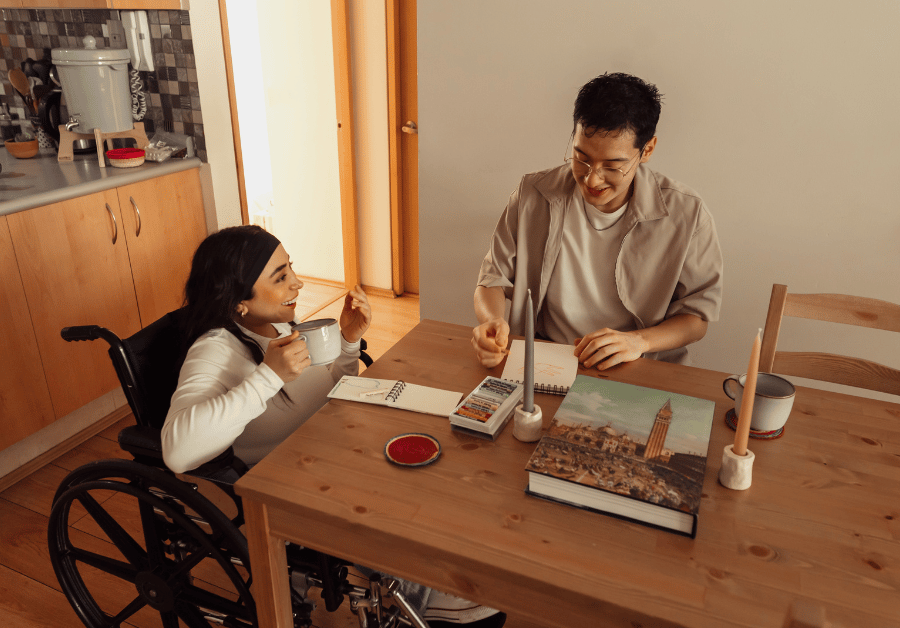Supported Independent Living (SIL) in Australia: Your Ultimate Guide
Supported Independent Living (SIL) in Australia: Your Comprehensive Guide
Are you or a loved one exploring options for Supported Independent Living (SIL) in Australia? Understanding SIL and how it works with the National Disability Insurance Scheme (NDIS) can be complex. This guide is designed to provide clear, helpful information for Australians, particularly those in Sydney, Melbourne, Perth, Brisbane, Adelaide, and Hobart, who are seeking to live more independently with the right support.
What is Supported Independent Living?

Supported Independent Living (SIL) is an NDIS support designed to help people with disability live as independently as possible in their own home. It encompasses a range of supports, including assistance with daily tasks, personal care, and other activities that enable individuals to live independently and participate in their community. It is important to understand that living sil is not just about having a place to stay; it's about having the right level of support to foster independent living and personal growth.
Key Features of Supported Independent Living
- Personalized Support: SIL is tailored to meet the individual needs and goals of each participant.
- Focus on Independence: The primary aim is to empower individuals to develop skills and confidence to manage their lives as autonomously as possible.
- Safe and Supportive Environment: SIL provides a safe and supportive home environment where individuals can thrive.
- Community Inclusion: SIL encourages participation in community activities and social interactions.
Who is Supported Independent Living For?
Supported Independent Living is generally available to people who require support with various aspects of their daily lives due to their disability. This might include individuals who need assistance with:
- Personal care (showering, dressing, grooming)
- Meal preparation
- Household tasks (cleaning, laundry)
- Medication management
- Social and community participation
- Managing finances
It's essential to remember that Supported Independent Living is not a one-size-fits-all solution. The level of support provided will vary depending on the individual's specific needs and goals.
NDIS and Supported Independent Living

The NDIS plays a crucial role in funding Supported Independent Living for eligible participants. If you are an NDIS participant and believe that SIL is the right option for you, you will need to work with your support coordinator or local area coordinator to include it in your NDIS plan. The NDIS support you receive will depend on an assessment of your needs and your personal goals for independent living.
How to Access NDIS Funding for Supported Independent Living
- Assessment: An assessment will be conducted to determine your support needs and eligibility for SIL funding.
- Plan Development: Your NDIS plan will be developed in consultation with you, your family, and your support network.
- Funding Allocation: Funding for Supported Independent Living will be allocated based on your assessed needs and the goals outlined in your plan.
- Service Agreement: You will need to establish a service agreement with a registered SIL provider.
Types of Supported Independent Living Arrangements
There are several types of Supported Independent Living arrangements available in Australia. The most suitable option will depend on your individual preferences, needs, and the level of support you require:
- Shared Living: Living with other people with disability in a shared home, with support staff available as needed. This option can foster a sense of community and reduce social isolation.
- Individual Living: Living in your own apartment or house, with support staff providing assistance with specific daily tasks. This option offers greater independence and privacy.
- Host Family: Living with a host family who provides support and companionship. This option can offer a family-like environment and a sense of belonging.
- Group Homes: These are typically smaller residences providing 24/7 care and support for a small group of individuals with similar needs.
Finding a Supported Independent Living Provider

Choosing the right Supported Independent Living provider is a crucial decision. It's important to find a provider that understands your needs, respects your choices, and is committed to helping you achieve your goals. Here are some tips for finding the right living provider:
- Research: Look for registered NDIS providers in your area that offer SIL services.
- Check Credentials: Ensure the provider is registered with the NDIS and has a good reputation.
- Visit Potential Homes: If possible, visit the home where you would be living to get a feel for the environment.
- Meet the Staff: Meet the support staff who would be providing your care and support.
- Ask Questions: Don't hesitate to ask questions about the provider's services, policies, and procedures.
What to Consider When Choosing a SIL Provider
When evaluating Supported Independent Living providers, consider the following factors:
- Experience and Expertise: Does the provider have experience supporting individuals with similar needs to yours?
- Staff Training and Qualifications: Are the support staff well-trained and qualified to provide the necessary care?
- Service Delivery Model: Does the provider offer a flexible and personalized service delivery model?
- Communication and Reporting: How does the provider communicate with you and your family about your progress and any issues that arise?
- Emergency Response: What is the provider's emergency response plan?
- Cost: What are the costs associated with SIL, and how are they covered by the NDIS?
The Benefits of Supported Independent Living
Start Your Journey to Independent Living Today
Contact Us TodaySupported Independent Living offers a wide range of benefits for people with disability, including:
- Increased Independence: SIL empowers individuals to develop skills and confidence to manage their lives more autonomously.
- Improved Quality of Life: SIL provides a safe, supportive, and enriching environment where individuals can thrive.
- Enhanced Social Inclusion: SIL encourages participation in community activities and social interactions, reducing social isolation.
- Greater Choice and Control: SIL allows individuals to have greater choice and control over their lives and the support they receive.
- Family Support: SIL can provide respite for families and carers, allowing them to maintain their own well-being.
Supported Independent Living in Sydney, Melbourne, Perth, Brisbane, Adelaide, and Hobart
Supported Independent Living services are available in major cities across Australia, including Sydney, Melbourne, Perth, Brisbane, Adelaide, and Hobart. However, the availability of specific services and providers may vary depending on your location. It's important to research providers in your area and find one that meets your individual needs and preferences.
Finding SIL Providers in Your City
- Online Directories: Use online directories to search for NDIS registered SIL providers in your city.
- Local Area Coordinators: Contact your local area coordinator for information about SIL options in your area.
- Disability Support Organizations: Reach out to disability support organizations for recommendations and referrals.
- NDIS Website: Visit the NDIS website for a list of registered providers.
- Question 1: What is the difference between Supported Independent Living (SIL) and Specialist Disability Accommodation (SDA)?▲Supported Independent Living (SIL) refers to the support services provided to help individuals live independently, such as assistance with daily tasks and personal care. In contrast, Specialist Disability Accommodation (SDA) refers to the physical housing designed for people with extreme functional impairment or very high support needs. SIL is about support, while SDA is about the home itself. They can be funded together or separately under the NDIS.Question 2: Am I eligible for Supported Independent Living under the NDIS?▲Eligibility for SIL is determined by the NDIS based on your individual needs and goals. You may be eligible if you require regular support with daily activities like personal care, meal preparation, or community participation. A thorough functional assessment and input from your support coordinator or allied health professionals will help determine your suitability for SIL funding.
Conclusion: Empowering Independent Living in Australia
Supported Independent Living is a valuable NDIS support that can help people with disabilitylive more independently and achieve their goals. By understanding the different types of SIL arrangements, finding the right provider, and accessing NDIS funding, you can take control of your life and create a brighter future. Whether you're in Sydney, Melbourne, Perth, Brisbane, Adelaide, or Hobart, Supported Independent Living can be a pathway to greater independence and a more fulfilling life.
Ready to explore your Supported Independent Living options? Contact Alliance Care Support today to learn more about how we can help you live independently.
